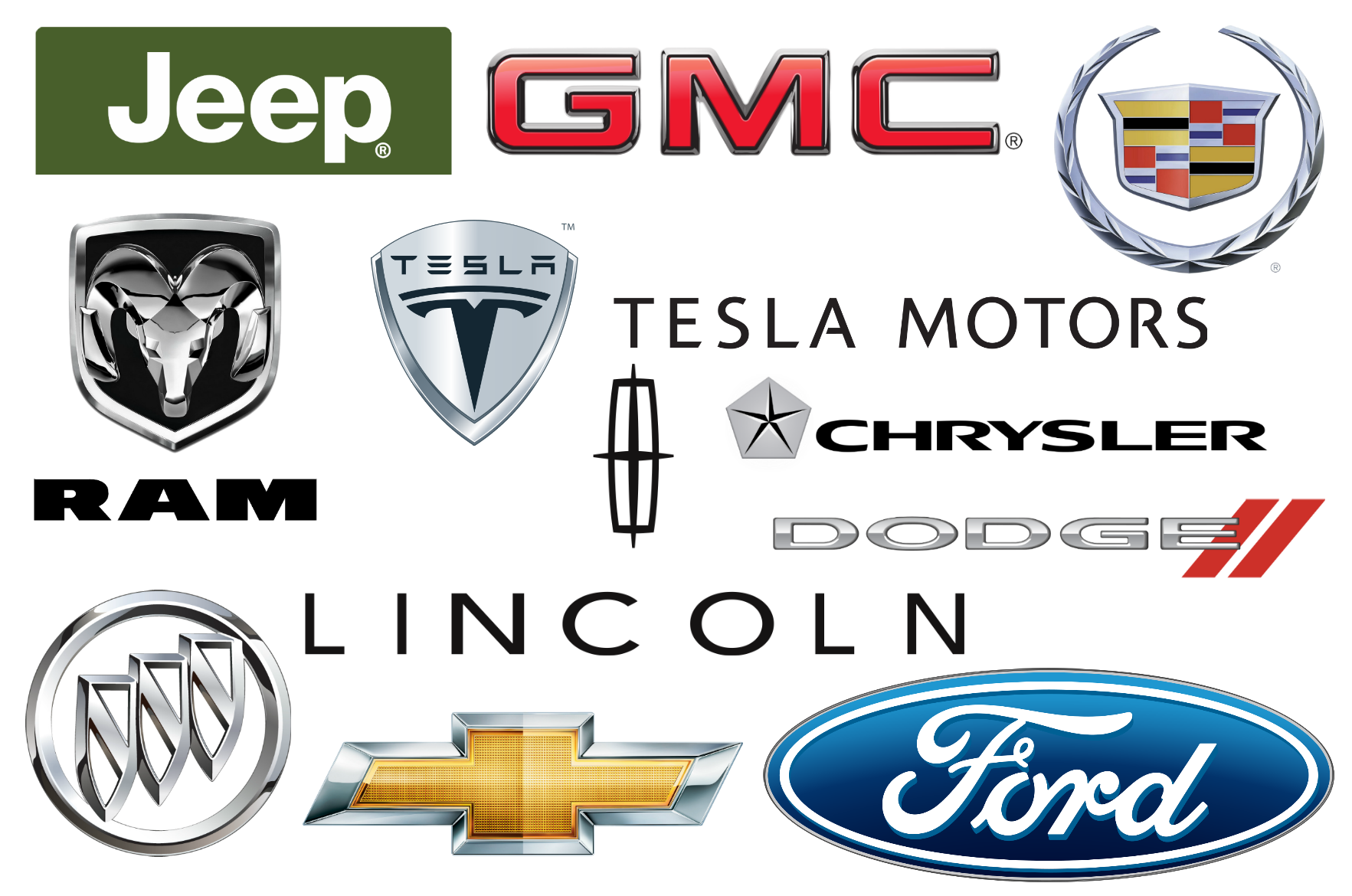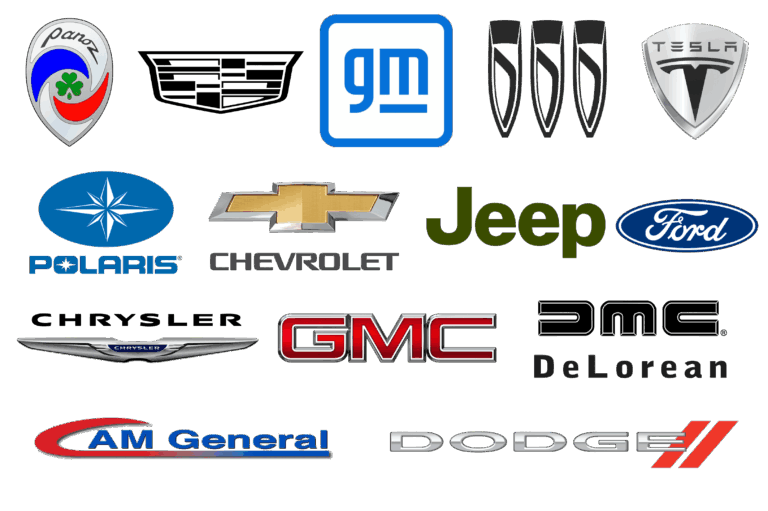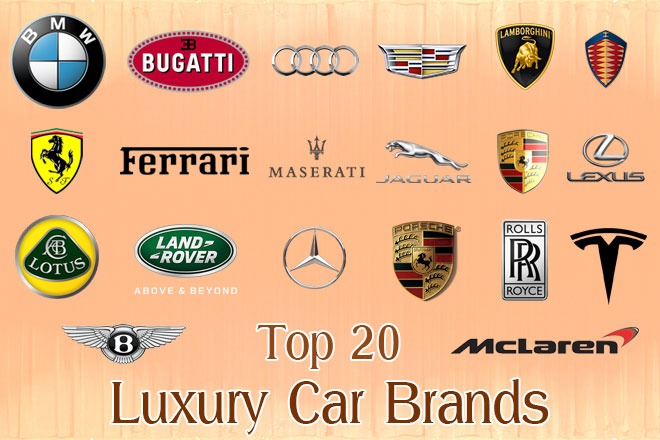List Of Car Brands In USA: A Comprehensive Guide to the American Automotive Landscape
List Of Car Brands In USA: A Comprehensive Guide to the American Automotive Landscape cars.truckstrend.com
The United States automotive market is a dynamic and incredibly diverse ecosystem, home to an extensive array of car brands from across the globe. For consumers, this translates into an unparalleled selection of vehicles, catering to every need, budget, and lifestyle imaginable. Understanding the "List Of Car Brands In USA" is more than just memorizing names; it’s about comprehending the intricate tapestry of innovation, competition, and consumer preferences that shape one of the world’s most significant industries. From iconic American powerhouses to meticulously engineered European luxury marques and cutting-edge Asian innovators, each brand brings its unique heritage, design philosophy, and technological advancements to the forefront, vying for a share of the American driver’s garage. This comprehensive guide will navigate the vast landscape of car brands available in the USA, offering insights into their categories, key characteristics, and practical advice for navigating this exciting market.
The American Automotive Landscape: A Diverse Ecosystem
List Of Car Brands In USA: A Comprehensive Guide to the American Automotive Landscape
The US automotive market is a microcosm of global manufacturing, reflecting international design trends, engineering prowess, and marketing strategies. Broadly, the car brands available in the USA can be categorized into three main groups based on their origin and historical market presence: Domestic Brands, Asian Import Brands, and European Import Brands. A fourth, rapidly growing category includes Emerging Electric Vehicle (EV) and Niche Brands that are redefining the future of mobility. Each category boasts distinct strengths, catering to varied consumer demands, from rugged utility vehicles and fuel-efficient commuters to opulent luxury sedans and high-performance sports cars.
I. American Icons: The Enduring Legacy of Domestic Brands
American car brands have a deep-rooted history in the USA, often synonymous with innovation, robust engineering, and a focus on meeting the specific needs of American drivers, particularly in the truck and SUV segments.
- General Motors (GM): A titan of the industry, GM encompasses several well-known brands:
- Chevrolet: Known for its diverse lineup, from popular trucks (Silverado) and SUVs (Tahoe, Equinox) to sports cars (Corvette) and EVs (Bolt EV, Blazer EV). Chevrolet often represents value and widespread appeal.
- GMC: Positioned as a premium truck and SUV brand, GMC offers more upscale versions of GM’s popular utility vehicles (Sierra, Yukon).
- Cadillac: GM’s luxury division, focusing on sophisticated sedans, SUVs (Escalade), and increasingly, electric vehicles (Lyriq), aiming for cutting-edge technology and comfort.
- Buick: Historically known for comfortable, entry-luxury sedans, Buick now primarily offers a range of crossovers and SUVs, emphasizing quiet rides and premium features.

- Ford Motor Company: Another foundational American automaker, celebrated for its broad market appeal and legendary vehicles:
- Ford: A household name, Ford dominates the truck market with its F-Series (America’s best-selling vehicle for decades). It also offers a strong lineup of SUVs (Explorer, Escape, Bronco) and iconic performance cars (Mustang), alongside a growing EV presence (Mach-E, F-150 Lightning).
- Lincoln: Ford’s luxury brand, providing refined SUVs (Navigator, Aviator) and sedans with an emphasis on comfort, design, and advanced technology.

- Stellantis (formerly FCA US): Formed from the merger of Fiat Chrysler Automobiles and PSA Group, Stellantis in the US includes:
- Jeep: Synonymous with off-road capability and adventure, Jeep offers a full range of SUVs from compact to full-size (Wrangler, Grand Cherokee, Gladiator).
- Ram: A dedicated truck brand, Ram is highly competitive with its full-size pickups (Ram 1500, 2500), known for their comfort and powerful capabilities.
- Dodge: Known for its performance-oriented cars (Charger, Challenger) and SUVs, Dodge embraces a muscle car heritage.
- Chrysler: Currently focusing on minivans (Pacifica) and some sedans, Chrysler often highlights family-friendly features and practicality.

- Tesla: A groundbreaking American EV manufacturer, Tesla revolutionized the automotive industry with its focus solely on electric vehicles, advanced technology, and direct-to-consumer sales model (Model S, 3, X, Y, Cybertruck).
Key Characteristics & Benefits: Domestic brands often offer strong performance, high towing capacities (especially trucks), and vehicles designed for American road conditions and preferences. They benefit from extensive dealer networks and strong brand loyalty, contributing significantly to the US economy.
Considerations: While quality has dramatically improved, some historical perceptions persist. The transition to electric vehicles represents both an opportunity and a challenge for these established giants.
II. Asian Powerhouses: Innovation, Reliability, and Value
Asian car brands, primarily from Japan and South Korea, have carved out a massive share of the US market by emphasizing reliability, fuel efficiency, advanced technology, and excellent value.
- Japanese Brands:
- Toyota (including Lexus): Renowned globally for reliability, durability, and strong resale value. Toyota offers a vast range of vehicles from compacts (Corolla) to SUVs (RAV4, Highlander), trucks (Tacoma, Tundra), and a pioneering lineup of hybrids (Prius). Lexus is Toyota’s luxury division, known for refinement, quiet rides, and impeccable reliability.
- Honda (including Acura): Known for engineering excellence, practical designs, and engaging driving dynamics. Honda’s lineup includes popular sedans (Civic, Accord), versatile SUVs (CR-V, Pilot), and minivans (Odyssey). Acura is Honda’s luxury arm, offering performance-oriented luxury vehicles.
- Nissan (including Infiniti): Offers a wide range of sedans, SUVs (Rogue, Pathfinder), and trucks (Titan). Infiniti is Nissan’s luxury brand, focusing on distinctive design and technology.
- Subaru: Famous for standard all-wheel drive across most of its lineup, focusing on safety, outdoor capability, and loyal customer base (Outback, Forester, Crosstrek).
- Mazda: Celebrated for its focus on driving dynamics, premium interiors, and stylish designs, offering a more engaging experience across its sedans and SUVs (CX-5, Mazda3).
- Mitsubishi: A smaller player in the US market, primarily offering SUVs and crossovers.
- South Korean Brands:
- Hyundai (including Genesis): Has seen remarkable growth, offering compelling value, stylish designs, strong warranties, and a rapidly expanding EV lineup. Genesis is Hyundai’s luxury marque, quickly gaining recognition for its sophisticated design, performance, and competitive pricing.
- Kia: Sister brand to Hyundai, Kia has transformed its image with bold designs, competitive features, and strong warranties, offering everything from subcompacts to SUVs and EVs.
Key Characteristics & Benefits: Asian brands are often lauded for their low cost of ownership, exceptional reliability, fuel efficiency, and high resale values. They frequently lead in consumer satisfaction and safety ratings.
Considerations: While designs have become more adventurous, some still perceive certain models as conservative. The focus on value can sometimes mean less emphasis on raw performance compared to European rivals.
III. European Elegance and Performance: Luxury, Engineering, and Exclusivity
European car brands are often associated with sophisticated design, precision engineering, luxurious interiors, and high-performance capabilities, typically occupying the premium and luxury segments.
- German Brands: Renowned for engineering prowess and luxury.
- Mercedes-Benz: A symbol of luxury and innovation, offering a vast range from compacts to executive sedans (C-Class, E-Class, S-Class), SUVs (GLE, GLS), and high-performance AMG models.
- BMW: Famous for its "Ultimate Driving Machine" philosophy, emphasizing driving dynamics, performance, and sporty luxury across its sedans (3 Series, 5 Series), SUVs (X3, X5), and M performance division.
- Audi: Known for its elegant design, quattro all-wheel drive system, advanced technology, and refined interiors, offering a wide array of luxury sedans and SUVs.
- Volkswagen: The parent company of Audi, Porsche, and others, Volkswagen offers a range of mainstream vehicles in the US, known for their solid build quality and European driving feel (Jetta, Tiguan, ID.4).
- Porsche: A legendary sports car and luxury SUV manufacturer, known for iconic models like the 911, Cayenne, Macan, and Taycan EV, combining performance with everyday usability.
- Italian Brands: Synonymous with passion, style, and high-performance.
- Alfa Romeo: Known for its distinctive styling and engaging driving experience (Giulia, Stelvio).
- Maserati: Offers luxurious and sporty grand tourers and SUVs (Ghibli, Levante, Grecale).
- Ferrari & Lamborghini: Ultra-luxury exotic sports car manufacturers, representing the pinnacle of performance and exclusivity.
- Swedish Brands:
- Volvo: A pioneer in safety technology, known for its minimalist Scandinavian design, comfortable interiors, and growing lineup of mild-hybrid, plug-in hybrid, and pure electric vehicles.
- Polestar: Volvo’s performance EV sub-brand, focusing on sustainable luxury and electric performance.
- British Brands: Often embody heritage, bespoke craftsmanship, and luxury.
- Land Rover: Famous for its rugged luxury SUVs and exceptional off-road capabilities (Range Rover, Defender, Discovery).
- Jaguar: Offers stylish luxury sedans and SUVs, with a focus on refined performance.
- Aston Martin, McLaren, Bentley, Rolls-Royce: Ultra-luxury and exotic performance brands, representing the pinnacle of automotive craftsmanship and exclusivity.
Key Characteristics & Benefits: European brands excel in driving dynamics, luxurious appointments, advanced safety features, and often cutting-edge technology. They offer prestige and a distinct driving feel.
Considerations: Generally higher purchase prices and potentially higher maintenance costs due to complex engineering and specialized parts.
IV. Emerging and Niche Players: Shaping the Future
The US market is also seeing a rise of new entrants, particularly in the electric vehicle space, challenging established norms and pushing boundaries.
- Lucid: An American EV startup focused on ultra-luxury electric sedans with groundbreaking range (Lucid Air).
- Rivian: An American EV manufacturer specializing in electric trucks and SUVs designed for adventure (R1T, R1S).
- VinFast: A Vietnamese automaker entering the US market with a range of electric SUVs.
- Other smaller players and specialized manufacturers catering to specific niches.
Key Characteristics & Benefits: These brands often bring fresh perspectives, innovative technologies, and a strong focus on sustainability. They can offer unique designs and performance capabilities.
Challenges: Scaling production, building brand trust, establishing charging infrastructure partnerships, and securing long-term financial stability are common hurdles.
Navigating the Options: Tips for Choosing a Car Brand
With such a vast array of choices, selecting the right car brand and model can be daunting. Here’s some practical advice to guide your decision-making:
- Define Your Needs and Budget: Before looking at brands, determine what you truly need. Are you commuting daily? Do you need space for a family? Is off-road capability essential? What’s your realistic budget for purchase, insurance, fuel, and maintenance?
- Research Reliability and Safety: Consult reputable third-party sources like J.D. Power, Consumer Reports, the National Highway Traffic Safety Administration (NHTSA), and the Insurance Institute for Highway Safety (IIHS). Some brands consistently rank higher in reliability and safety.
- Consider Total Cost of Ownership (TCO): Beyond the sticker price, factor in fuel efficiency, insurance premiums, maintenance costs (parts and labor), and expected depreciation. A lower-priced car might have higher TCO over time.
- Test Drive Multiple Brands and Models: The driving experience is highly personal. Don’t limit yourself to one brand. Test drive different vehicles within your target segment to feel the differences in handling, comfort, and technology.
- Read Reviews and Talk to Owners: Online forums, professional reviews, and personal testimonials from current owners can provide invaluable real-world insights into a brand’s strengths and weaknesses.
- Assess Dealer Network and Service: Consider the availability and reputation of dealerships in your area. Easy access to service and parts can significantly impact your ownership experience.
- Future-Proofing: With the rapid shift towards electrification, consider if an EV or hybrid aligns with your long-term needs and if charging infrastructure is available in your area.
Challenges and Trends in the US Automotive Market
The automotive market is in a constant state of evolution, and several trends and challenges are shaping the landscape for all car brands in the USA:
- Electrification: The most significant trend is the accelerating transition to electric vehicles. Brands are investing billions in EV platforms, battery technology, and charging solutions. This requires rethinking manufacturing, supply chains, and consumer education.
- Supply Chain Disruptions: Global events, particularly semiconductor chip shortages, have severely impacted vehicle production, leading to limited inventory, higher prices, and longer wait times for consumers.
- Rising Vehicle Prices: Inflation, supply chain issues, and increased demand have pushed both new and used car prices to historic highs, making affordability a growing concern.
- Autonomous Driving Technology: While still in development, advancements in autonomous driving systems are a major focus for many brands, promising increased safety and convenience in the future.
- Connectivity and Software: Vehicles are becoming increasingly connected "computers on wheels," with over-the-air updates, advanced infotainment systems, and subscription services for features becoming standard.
Manufacturers are adapting by diversifying supply chains, investing heavily in research and development for EVs and autonomous tech, and exploring new ownership models like subscriptions and car-sharing services to maintain market relevance.
Conclusion
The "List Of Car Brands In USA" is not merely an inventory; it represents a vibrant, competitive, and constantly evolving industry. From the rugged utility of American trucks to the precision of German luxury cars, the efficiency of Japanese sedans, and the bold innovation of new EV startups, the choice for American consumers is richer than ever. By understanding the categories, characteristics, and key considerations associated with these brands, prospective buyers can make informed decisions that align with their needs, values, and budget. The automotive market will continue to transform, but the fundamental pursuit of quality, reliability, performance, and value will remain at the heart of every brand’s strategy in the dynamic US landscape.
Comprehensive Car Brands in USA: Representative Price & Feature Table
Disclaimer: Price ranges are approximate and highly variable based on model, trim level, options, and market conditions. They represent the general spectrum of a brand’s offerings in the US market, not specific model pricing.
| Brand Name | Origin Country | Primary Segment(s) | Typical Price Range (USD) | Key Characteristics/Focus |
|---|---|---|---|---|
| Acura | Japan | Luxury, Performance | $35,000 – $70,000+ | Reliability, Sporty Luxury, Technology |
| Alfa Romeo | Italy | Performance, Luxury | $45,000 – $90,000+ | Style, Driving Dynamics, Passion |
| Audi | Germany | Luxury, Performance | $40,000 – $150,000+ | Elegant Design, AWD, Technology, Refinement |
| BMW | Germany | Luxury, Performance | $40,000 – $180,000+ | Driving Dynamics, Luxury, Engineering |
| Buick | USA | Mainstream, Entry-Luxury | $25,000 – $50,000+ | Quiet Ride, Comfort, SUV-focused |
| Cadillac | USA | Luxury, Performance | $45,000 – $120,000+ | Bold Design, Luxury, Technology, EVs |
| Chevrolet | USA | Mass Market, Performance | $25,000 – $80,000+ | Trucks, SUVs, Value, Sports Cars, EVs |
| Chrysler | USA | Mainstream, Family | $35,000 – $60,000+ | Minivans, Practicality, Value |
| Dodge | USA | Performance, Mainstream | $30,000 – $90,000+ | Muscle Cars, Performance, SUVs |
| Ford | USA | Mass Market, Performance | $25,000 – $100,000+ | Trucks, SUVs, EVs, Iconic Models |
| Genesis | South Korea | Luxury | $40,000 – $80,000+ | Value, Luxury, Warranty, Design |
| GMC | USA | Premium Trucks/SUVs | $35,000 – $90,000+ | Upscale Trucks, SUVs, Capability |
| Honda | Japan | Mass Market, Practical | $20,000 – $60,000+ | Reliability, Efficiency, Practicality, Value |
| Hyundai | South Korea | Mass Market, Value | $20,000 – $60,000+ | Value, Warranty, Design, EVs |
| Jaguar | UK | Luxury, Performance | $50,000 – $100,000+ | Style, Refinement, Driving Experience |
| Jeep | USA | Off-road, SUV | $30,000 – $80,000+ | Off-road Capability, Adventure, SUVs |
| Kia | South Korea | Mass Market, Value | $20,000 – $60,000+ | Bold Design, Features, Warranty, EVs |
| Land Rover | UK | Luxury SUVs, Off-road | $50,000 – $200,000+ | Luxury, Off-road Capability, Prestige |
| Lexus | Japan | Luxury | $40,000 – $90,000+ | Reliability, Refinement, Comfort, Value |
| Lincoln | USA | Luxury | $50,000 – $100,000+ | American Luxury, Comfort, Design |
| Lucid | USA | Ultra-Luxury EV | $80,000 – $180,000+ | Long-Range EV, Performance, Cutting-Edge Tech |
| Maserati | Italy | Luxury, Performance | $80,000 – $150,000+ | Italian Style, Performance, Exclusivity |
| Mazda | Japan | Mainstream, Driving Focus | $25,000 – $45,000+ | Driving Dynamics, Premium Feel, Design |
| Mercedes-Benz | Germany | Luxury, Performance | $45,000 – $200,000+ | Luxury, Engineering, Status, Technology |
| Mini | UK (BMW Group) | Compact, Style | $30,000 – $50,000+ | Fun-to-Drive, Unique Style, Customization |
| Mitsubishi | Japan | Mainstream, SUV-focused | $20,000 – $40,000+ | Value, Practicality, Warranty |
| Nissan | Japan | Mass Market | $20,000 – $60,000+ | Practicality, Value, Diverse Lineup |
| Polestar | Sweden | EV, Premium | $50,000 – $80,000+ | Electric Performance, Sustainable Design |
| Porsche | Germany | Performance, Luxury | $60,000 – $250,000+ | Sports Cars, Performance, Luxury, Heritage |
| Ram | USA | Trucks | $35,000 – $90,000+ | Heavy-Duty Trucks, Comfort, Capability |
| Rivian | USA | EV, Adventure | $75,000 – $100,000+ | Electric Trucks/SUVs, Off-road Focus |
| Subaru | Japan | Mainstream, AWD | $25,000 – $50,000+ | All-Wheel Drive, Safety, Outdoors, Reliability |
| Tesla | USA | EV, Premium | $40,000 – $130,000+ | Electric, Technology, Performance, Autonomy |
| Toyota | Japan | Mass Market, Reliability | $20,000 – $70,000+ | Reliability, Efficiency, Hybrid, Resale Value |
| Volkswagen | Germany | Mainstream, European Feel | $25,000 – $50,000+ | Solid Build, Driving Dynamics, Practicality |
| Volvo | Sweden | Premium, Safety | $40,000 – $80,000+ | Safety, Scandinavian Design, Comfort, EVs |
Frequently Asked Questions (FAQ) about Car Brands in USA
Q1: How many distinct car brands are sold in the USA?
A1: While the exact number can fluctuate with new entrants and departures, there are typically around 40-50 major car brands with a significant presence and established dealer networks in the USA. If you include niche, exotic, and ultra-luxury brands with very limited distribution, the number can exceed 60-70.
Q2: What are the top-selling car brands in the USA?
A2: Sales figures vary year by year, but historically, the top-selling brands in the USA are typically Ford, Chevrolet, Toyota, Honda, Hyundai, and Kia. These brands consistently move the highest volumes due to their diverse lineups and broad appeal.
Q3: Are Chinese car brands widely sold in the USA?
A3: Currently, Chinese car brands do not have a significant presence in the mainstream US passenger vehicle market. While some Chinese-made vehicles are sold under American or European brand names (e.g., Buick Envision), direct sales of Chinese-branded passenger cars are limited. However, some commercial vehicles or niche offerings may be available, and the landscape is constantly evolving, with several Chinese automakers expressing interest in the US market in the future.
Q4: What is the difference between a "domestic" and an "import" car brand in the USA?
A4: "Domestic" car brands traditionally refer to companies headquartered in the United States, such as Ford, General Motors (Chevrolet, GMC, Cadillac, Buick), Stellantis (Jeep, Ram, Dodge, Chrysler), and Tesla. "Import" car brands are those headquartered in other countries, like Japan (Toyota, Honda),






